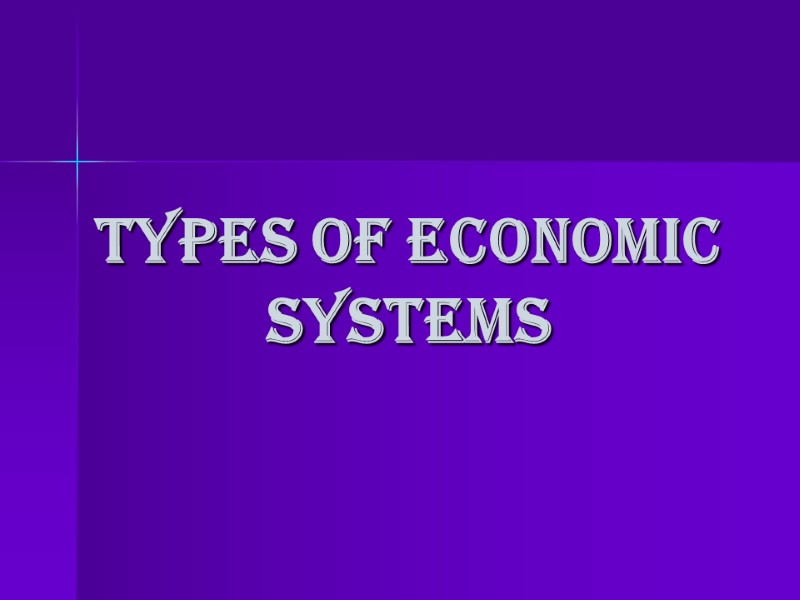 Types of economic systems
Types of economic systems
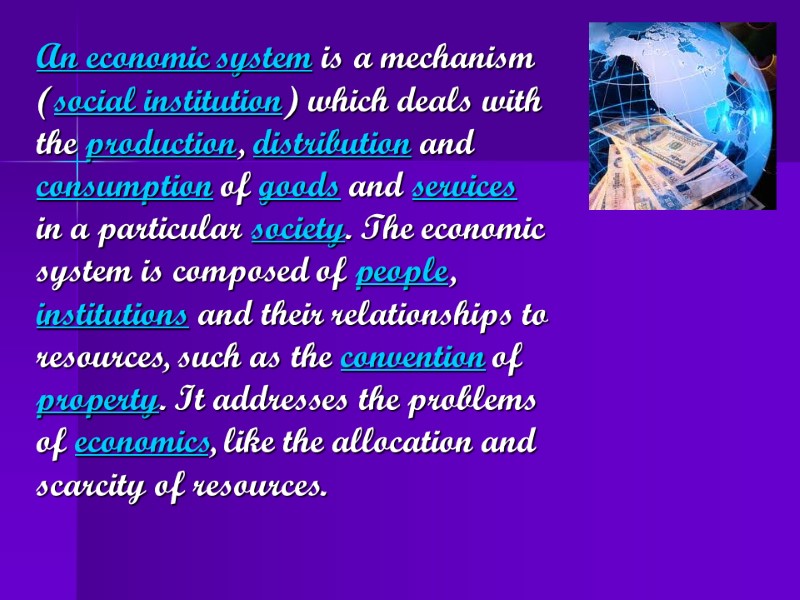 An economic system is a mechanism (social institution) which deals with the production, distribution and consumption of goods and services in a particular society. The economic system is composed of people, institutions and their relationships to resources, such as the convention of property. It addresses the problems of economics, like the allocation and scarcity of resources.
An economic system is a mechanism (social institution) which deals with the production, distribution and consumption of goods and services in a particular society. The economic system is composed of people, institutions and their relationships to resources, such as the convention of property. It addresses the problems of economics, like the allocation and scarcity of resources.
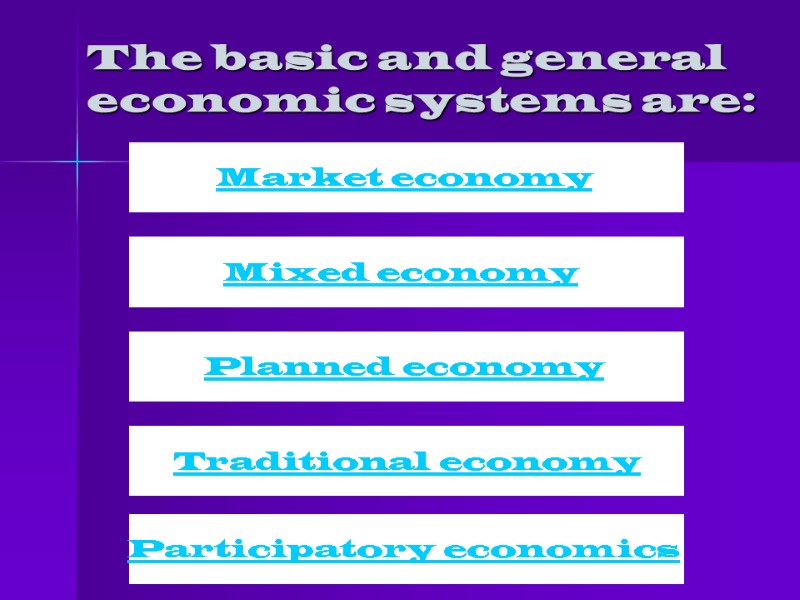 The basic and general economic systems are: Market economy Mixed economy Planned economy Traditional economy Participatory economics
The basic and general economic systems are: Market economy Mixed economy Planned economy Traditional economy Participatory economics
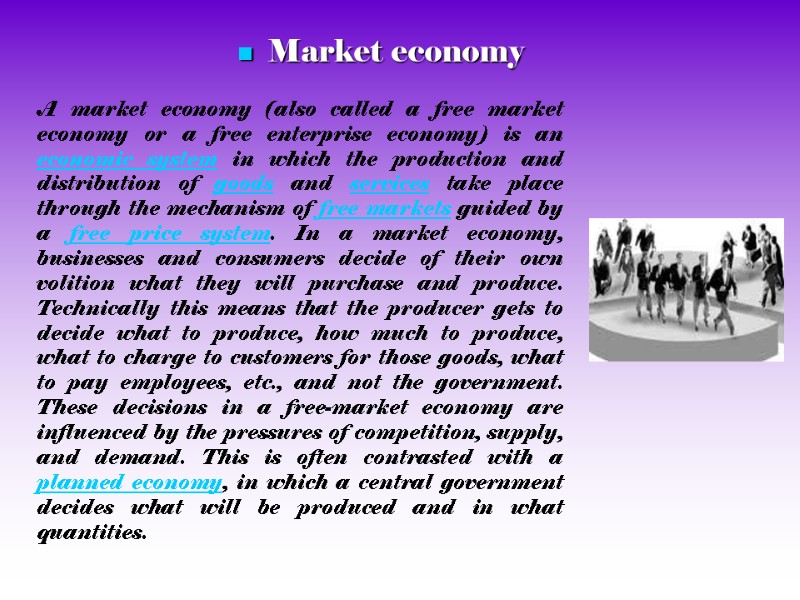 Market economy A market economy (also called a free market economy or a free enterprise economy) is an economic system in which the production and distribution of goods and services take place through the mechanism of free markets guided by a free price system. In a market economy, businesses and consumers decide of their own volition what they will purchase and produce. Technically this means that the producer gets to decide what to produce, how much to produce, what to charge to customers for those goods, what to pay employees, etc., and not the government. These decisions in a free-market economy are influenced by the pressures of competition, supply, and demand. This is often contrasted with a planned economy, in which a central government decides what will be produced and in what quantities.
Market economy A market economy (also called a free market economy or a free enterprise economy) is an economic system in which the production and distribution of goods and services take place through the mechanism of free markets guided by a free price system. In a market economy, businesses and consumers decide of their own volition what they will purchase and produce. Technically this means that the producer gets to decide what to produce, how much to produce, what to charge to customers for those goods, what to pay employees, etc., and not the government. These decisions in a free-market economy are influenced by the pressures of competition, supply, and demand. This is often contrasted with a planned economy, in which a central government decides what will be produced and in what quantities.
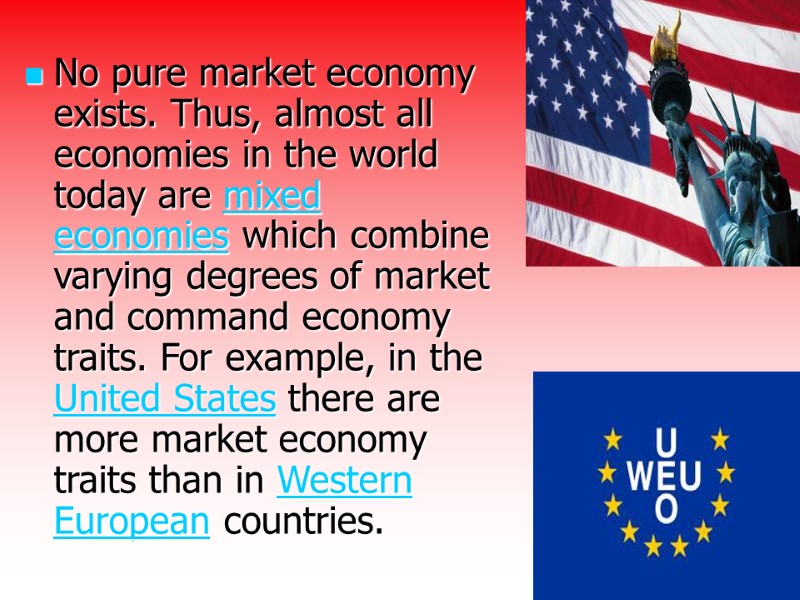 No pure market economy exists. Thus, almost all economies in the world today are mixed economies which combine varying degrees of market and command economy traits. For example, in the United States there are more market economy traits than in Western European countries.
No pure market economy exists. Thus, almost all economies in the world today are mixed economies which combine varying degrees of market and command economy traits. For example, in the United States there are more market economy traits than in Western European countries.
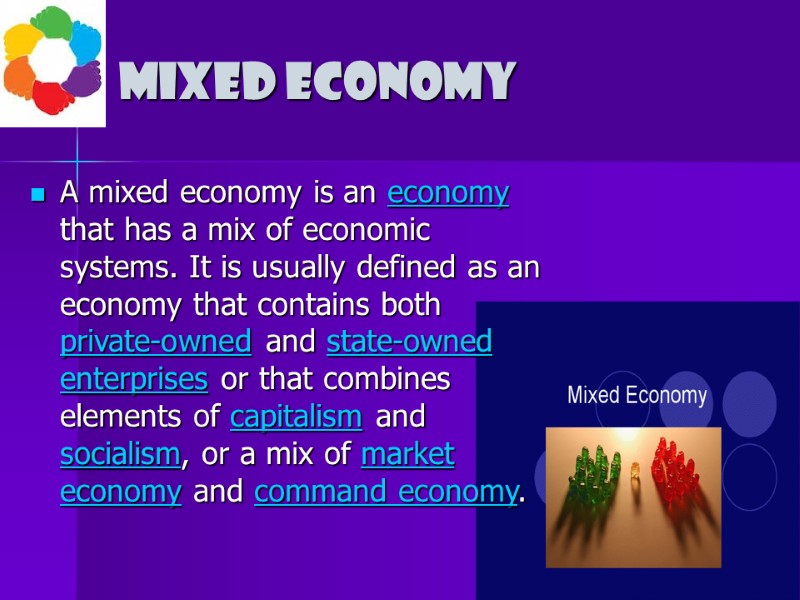 Mixed economy A mixed economy is an economy that has a mix of economic systems. It is usually defined as an economy that contains both private-owned and state-owned enterprises or that combines elements of capitalism and socialism, or a mix of market economy and command economy.
Mixed economy A mixed economy is an economy that has a mix of economic systems. It is usually defined as an economy that contains both private-owned and state-owned enterprises or that combines elements of capitalism and socialism, or a mix of market economy and command economy.













